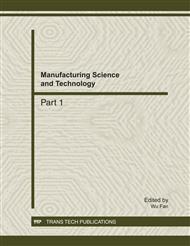p.835
p.840
p.846
p.852
p.856
p.862
p.866
p.872
p.877
The Effect of Drag-Reducing Polymer on Heat Transfer in Gas-Liquid Two-Phase Flow
Abstract:
An experimental loop was established with API X52 steel pipes to investigate the effect of drag-reducing polymer on heat transfer in gas-liquid two-phase flow. The inner diameter of the steel pipe is forty millimeter and the test loop has four different test sections such as horizontal, inclined upward, inclined downward and vertical upward sections. The experimental results were presented. The relationship between the drag reduction efficiency and heat transfer reduction was analyzed. When the drag reduction induced by drag-reducing polymer is about 60~70%, the heat transfer between the fluid and the pipe wall obviously decreases. The heat transfer reduction can reach up to 80~90%, which is greater than the drag reduction. A new method is proposed for characterizing the effect of drag reducing polymer on the heat transfer in two-phase flow with Stanton Number.
Info:
Periodical:
Pages:
856-861
Citation:
Online since:
November 2011
Authors:
Keywords:
Price:
Сopyright:
© 2012 Trans Tech Publications Ltd. All Rights Reserved
Share:
Citation:


